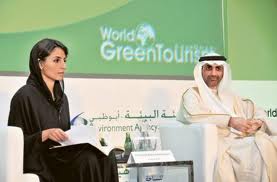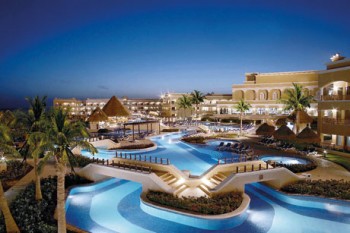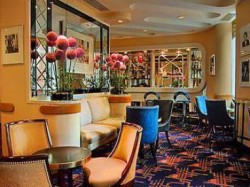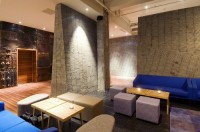Last 12th of February, with a colleague of mine, I went to Ljubljana to meet some potential clients willing to develop a new food concept project. It was snowing and as soon as we entered in Slovenia, the panorama changed. 
Beautiful. Striking.
We arrived at the perfect time to make the check-in at the hotel and to have some free time to enjoy Ljubljana downtown. Have you been there? You should, its beautiful! Again the time was perfect to have an aperitif. We went to one of the most beautiful wine bar I ever seen, the Movia. The atmosphere you can brief there is totally brought from the vineyards. We had Movia Cabernet Sauvignon. Outstanding ! Dinner at River House.
On the 14th, I flew to Madrid to meet an architectural and engineering group for Retail and Food & Beverages projects. Their great services are complementary with those of DESITA, therefore we met to find a mutual benefit business collaboration agreement. We succeed! Later on, we went to visit some of their projects. Dinner at La Tagliatella an impressive franchising concept.
Last week I was in Dubai to attend to Gulfood. I was there together with FCSI EAME colleagues to guard the booth at the exhibition. We have been successful. Foodservice Consultants Society International (FCSI) is the premier association promoting professionalism in foodservice and hospitality consulting. With over 1300 members in over 46 countries, FCSI members offer a wide range of consulting services including concept development, feasibility studies, food safety, design, marketing, operations and training. FCSI is changing a lot in its structure, philosophy and mission and we are all proud of this huge effort made by the Board of Directors. The website is brand new like the “foodservice consultant” magazine that provides authoritative insight, opinion and intelligence to help foodservice professionals keep in touch with the tings that matter.
It was nice to meet with clients, colleagues and old friends.
 For an important meeting I went to the Armani Hotel at Burj Khalifa, the tallest building in the world. It was my second time there after its opening and to meet with my guest, I went to the coffee shop in the lobby. Time was nice so we decided to share an Italian bottle of wine. With all my surprise, the young waiter served us the ordered white wine with apparent difficulty and … the white wine wasn’t cold and not even fresh. Unbelievable.
For an important meeting I went to the Armani Hotel at Burj Khalifa, the tallest building in the world. It was my second time there after its opening and to meet with my guest, I went to the coffee shop in the lobby. Time was nice so we decided to share an Italian bottle of wine. With all my surprise, the young waiter served us the ordered white wine with apparent difficulty and … the white wine wasn’t cold and not even fresh. Unbelievable.
We pointed out the regrettable inconvenience and the waiter brought us immediately a new bottle … with the same warm temperature. We had to call the waiter back and ask at least for an ice bucket and wait for a more pleasant wine temperature.
The fact is that I paid that bottle like 70 Euro and I didn’t receive any good service. It’s a shame as we were in THE Location. Now I probably understand why the f&b manager didn’t reply to my emails last year when I had my dinner at Mediterraneo. Beautiful atmosphere but very normal food. I think Armani Hotel has a lack in training human resources. Mr. Giorgio, please do something!
While I was in Dubai, I’ve been invited from a Sheikh friend of mine to attend the Peru Food Festival at Madinat Jumeirah’s Souk Amphitheater. What a surprise the Peruvian food. It’s just great! And it’s considered on the the next food trend worldwide.
So hurry up my friends, let’s organize a trip to Peru and all its wonders. Ready?
Well, I can’t write about everything happened because 15 days are quite long and things are many. I hope you enjoyed these few facts.
Traveling and sharing time with great people while having good food. Yes, that’s life!










